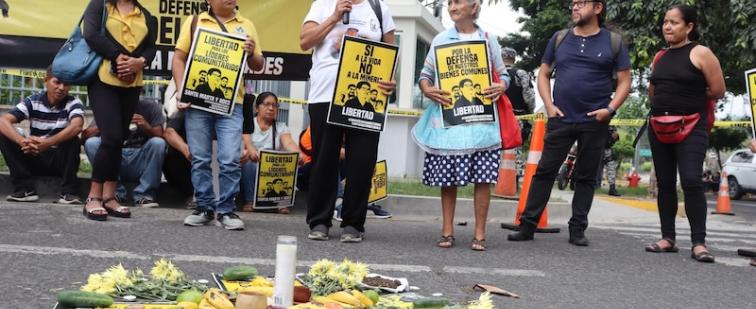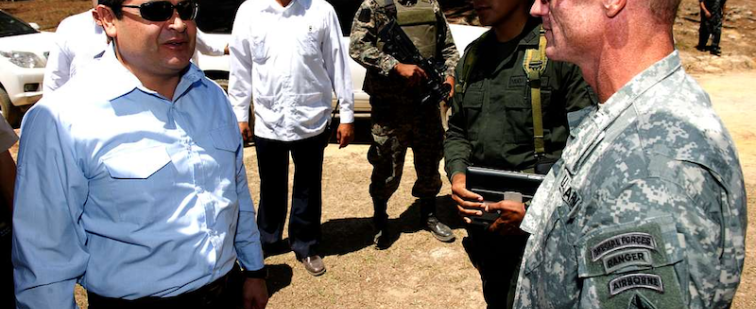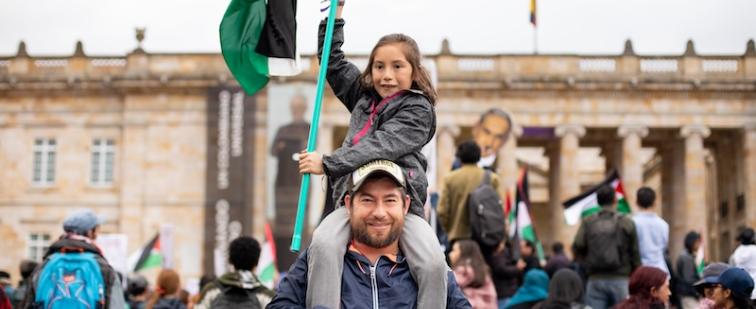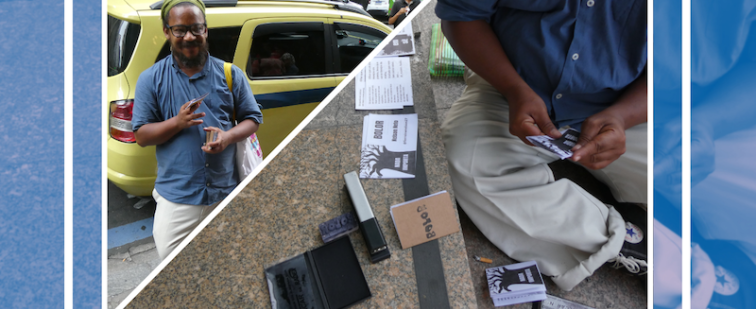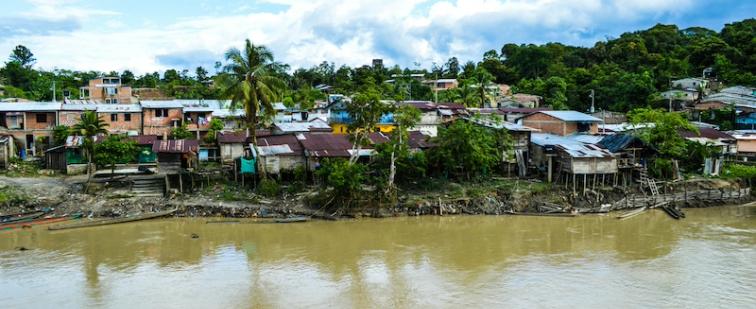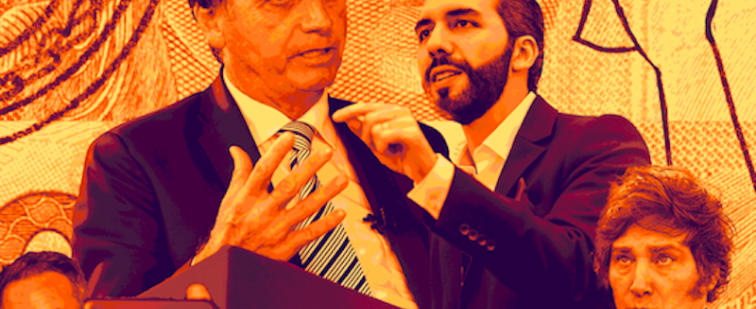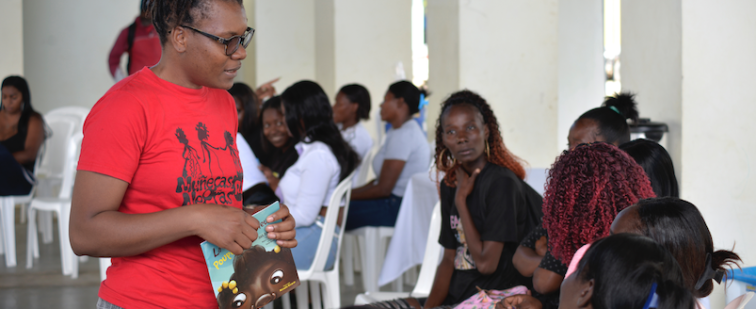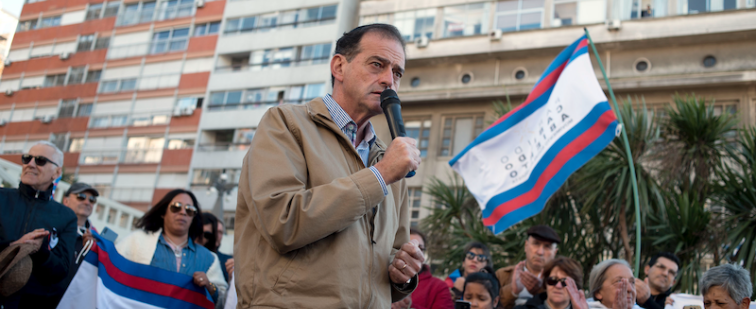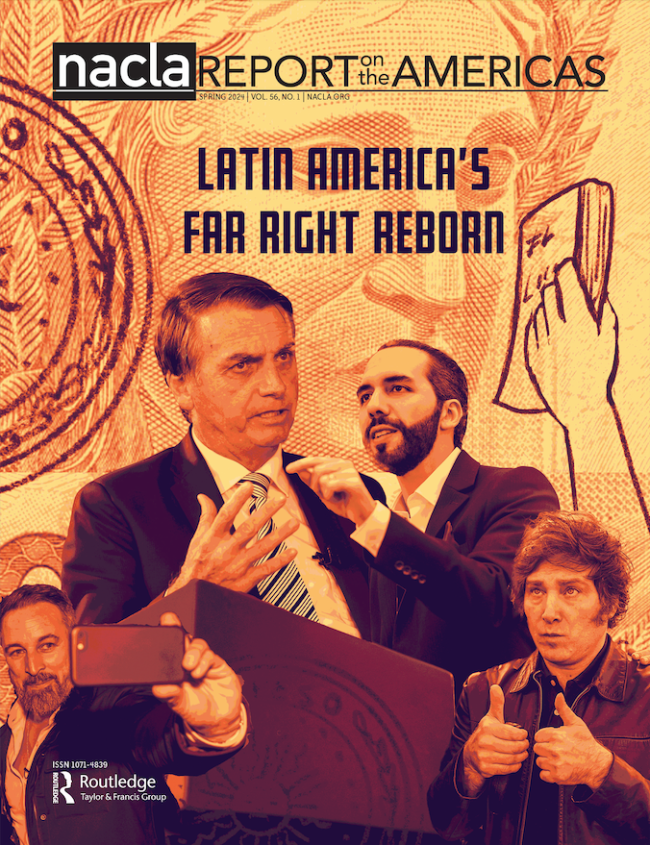Home
The high-gloss, made-for-flat-screen multi-billion dollar signing ceremonies between Chinese and Latin American officials have been staged to portray the triumphant return of the New International Economic Order. Yes, it’s true, the Global South is banding together again to trade once more. But wait a minute. Why are recent reports by the World Bank and the Organization for Economic Cooperation and Development also hailing this increase in China–Latin American trade relations?
This article originally appeared in the May/June 2010 edition of NACLA Report on the Americas.
Monday, May 24 marked the sixth week of a student strike at the University of Puerto Rico after protests began on April 21. Students are protesting $100 million budget cuts, increases in tuition, and changes to the university program. The student strike was intended to be only a 48 hour stoppage, but university officials were unwilling to negotiate with students. Now, after six weeks, the strike continues amidst reports of police brutality. International support is increasing for the students, including from New Yorkers who held a rally on May 18.
While the results of Bolivia’s April 4 regional and local elections are now officially certified, their significance—who really won and lost—continues to be debated. President Evo Morales's political party MAS has extended the geographic reach of its support, making important gains in the resource-rich lowland regions, a bastion of the right-wing opposition. But the vote also shows that MAS is far from a hegemonic political machine. Moreover, the major political challenge confronting them today is coming not from the largely discredited right, but from emergent new forces on the left, including strong, local grass-roots initiatives.
The trade policies enacted under the Clinton administration in the 1990s ruled out the possibility of a future for Haiti’s roughly 3 million small farmers. This is according to the former U.S. president himself. In March, Clinton, who is now the UN Special Envoy to Haiti, admitted that U.S. free market agricultural policy towards Haiti “has not worked." However, when discussing the possible future of Haiti’s agriculture at the International Donor’s Conference in New York on March 31, Clinton did not mention restoring the rice crop he helped destroy.
During the electoral campaign leading up to the May 6 elections in Britain, immigration proved to be an explosive issue, second only to concerns about the recession. For the 88,000 Latin American immigrants living in the country, hopes for immigration reform hang in the balance of these elections. However, much like in the United States, instead of campaign platforms that offered practical solutions to the issue, a reactionary hard-fisted rhetoric dominated the political landscape. The unwieldy elections have produced an uncomfortable coalition from both sides of Britain's political spectrum, with its immigration policies yet to be defined.
Few incidents have galvanized the Puerto Rican nation as much as the FBI’s extra-judicial killing of independence leader Filiberto Ojeda Ríos in September 2005. Indeed, the politically divided country exploded in outrage over the incident, and Ojeda Ríos’s funeral procession was the largest ever attended in the island’s history. With a personal and powerful testimony Elma Beatriz Rosado remembers her husband, the fallen martyr whose message is never far off, at a time when the U.S. Congress is reviewing legislation that proposes a change in the island’s status.
On April 27, gunmen killed two activists on their way to the autonomous municipality of San Juan Copala, Oaxaca, as a part of an international aid caravan. The caravan’s goal was to break a paramilitary siege that has left San Juan Copala, in the indigenous Triqui region of southern Mexico, cut off from the outside world since January, and to deliver food, clothing, and medicine. The attack, representative of Mexico's long history of paramilitarism, again exposes the country's political war against dissent, a reality too often hidden amidst Mexico's daily drug-related violence.
Investigative journalist Hollman Morris will receive the 2010 Samuel Chavkin Prize for Integrity in Latin American Journalism in honor of his brave work exposing human rights abuses committed by paramilitaries and the Colombian state.
Whatever comes next in Honduras, tens of thousands of ordinary Hondurans, from its new culture of resistance, will meet it with nerves of steel, forged in the terrible repression that followed the military coup last June. At least 40 people in the resistance have been killed, more than 3,000 illegally detained, and hundreds raped, beaten, and/or tortured in detention. For every person who has bravely come forward to testify about human rights abuses, there are five behind him or her terrified to speak out for fear of reprisals. And yet Hondurans have emerged from all this with a new sense of their own personal and collective powers. What exactly is this new creature, the Honduran resistance?
This article originally appeared in the May/June 2010 edition of NACLA Report on the Americas.
On April 23 Arizona Governor Jan Brewer signed into law what is being billed as the "broadest and strictest immigration measure in generations." The law requires Arizona police to ask people for documentation based on a "reasonable suspicion" that they are in the country "unlawfully," it targets day laborers and their employers, and sets up trespassing charges for those in the state without correct immigration papers, for which they could face jail time. This harsh new law has not only ignited condemnation inside and outside of the United States, but also in Arizona where many have taken to the streets in protest.

